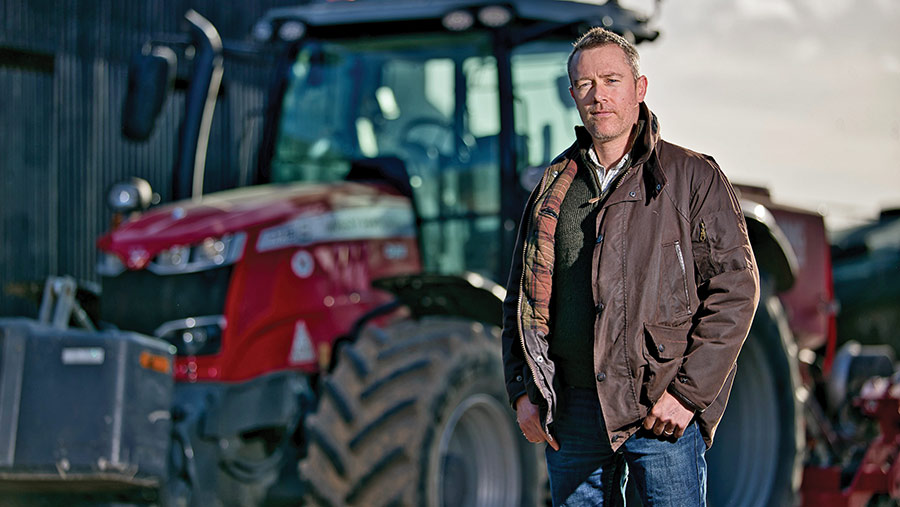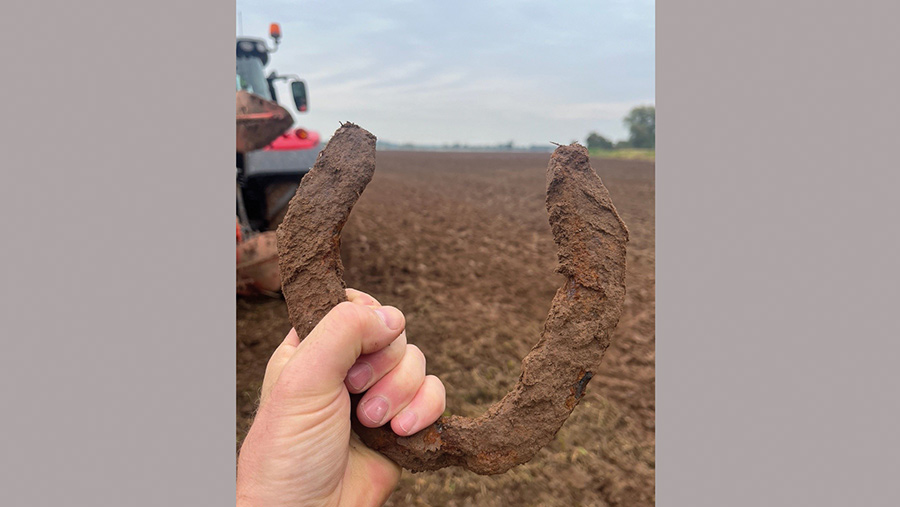Will’s World: Ploughing and the pursuit of happiness
 © Richard Stanton
© Richard Stanton When I was young, life was all about fast-paced excitement and instant gratification. As I’ve got older it’s become more about the simple pleasures.
A nice pint in a pub with an open fire. Seeing the sun rise. Singing along to my favourite song on a car journey. Eating a decent steak. Catching up with friends.
Reading a good book while sitting in a comfortable chair. Embarrassing my children.
All these things give me a sense of deep contentment.
See also: On test: Lemken’s five-furrow Juwel 8 plough
One thing I haven’t listed, as it’s slightly more unusual, is finding horseshoes when I’m ploughing (bang goes my admittance to the direct-drillers club).
This week I turned over another one for my collection that sits on the workshop wall.
I’m not sure why it makes me so happy, but I suspect it’s just the tangible link to the past and the heritage we all share in farming.
I like to imagine the horse it came from, and it being walked steadily to the blacksmith in the village for shoeing. I know, I’m a hopeless romantic about these things.

© Will Evans
Ancient wonder
There is something about ploughing that invokes a sense of nostalgia. Perhaps it’s the fact that it’s been done for more than 4,000 years.
Maybe it’s simpler than that, and it’s the smell of freshly turned earth that brings back memories, or the deep satisfaction that comes with straight lines and steady progress.
Or is it just being alone with your thoughts for days on end while you’re doing the job? I suppose we don’t get that time and space for just contemplating life very often anymore, given our hectic schedules.
I find myself thinking about my grandfather, who started ploughing with a horse before the war, when he was 15 years old. He used to tell me that he’d plough an acre a day, which would be about 11 miles of walking.
Hard physical work, tramping through the clay in all weathers. He’d marvel when I’d boast of what I could do in a day with my five-furrow reversible without breaking sweat in my air-conditioned cab.
What men they were back then, and how soft we’ve all become now. Still, I suppose it’s progress.
Whistle stop
I remember how he’d smile when he told me one of his favourite stories. As a boy in the early 1930s, he and his best friend knew that their hard-of-hearing neighbour had trained his horse to stop working on his whistle.
Hiding in a nearby hedge, they’d wait until he started ploughing and then give the same whistle, so the horse would stop suddenly halfway up the field, putting a kink in the previously straight furrow.
They’d then laugh uproariously while the poor confused man turned the air blue.
During my own early childhood, I’d be on the tractor with my dad for hours at a time while he ploughed, asking countless questions until eventually I’d fall asleep on his coat behind the seat.
If I close my eyes and think about it, I can still hear the Perkins engine and feel its vibrations underneath me. Nothing else mattered back then, I was just happy and content to be in the presence of my hero.
Will my own children plough the land one day, as generations of their ancestors have done before them? Or will driverless tractors and robots have replaced us all by then?
There’s not much romance in that thought, is there. Told you I’d had too much time to contemplate life lately.
Anyway, all these lucky horseshoes and I still haven’t won the lottery. Maybe this Saturday, eh?

